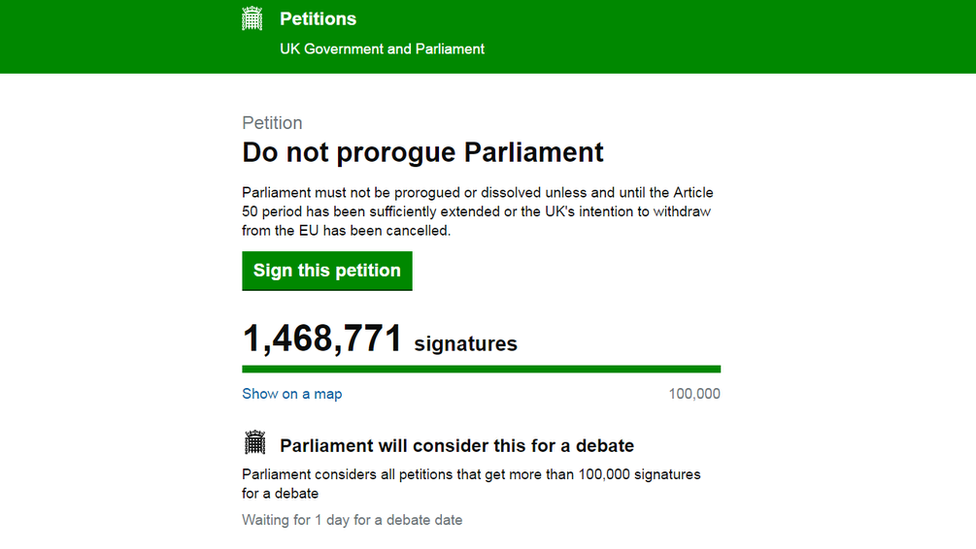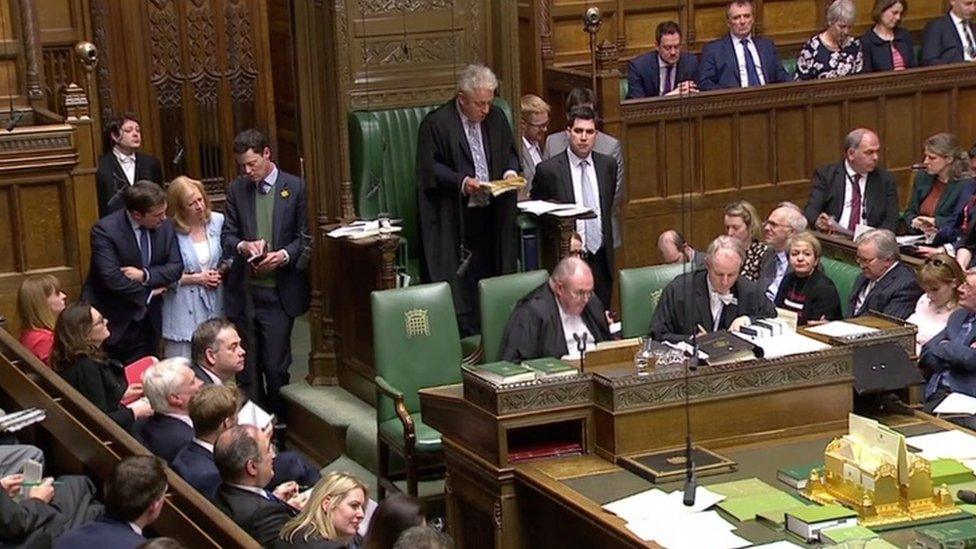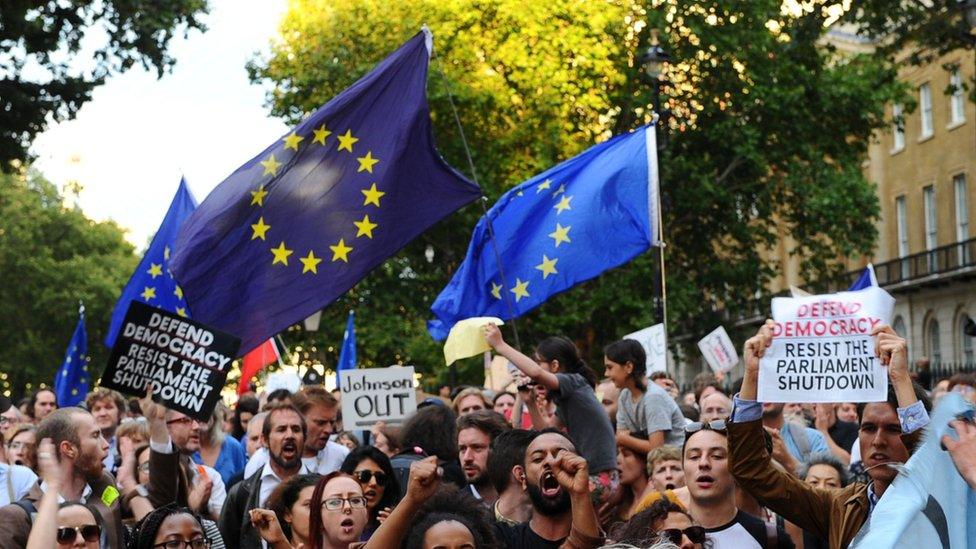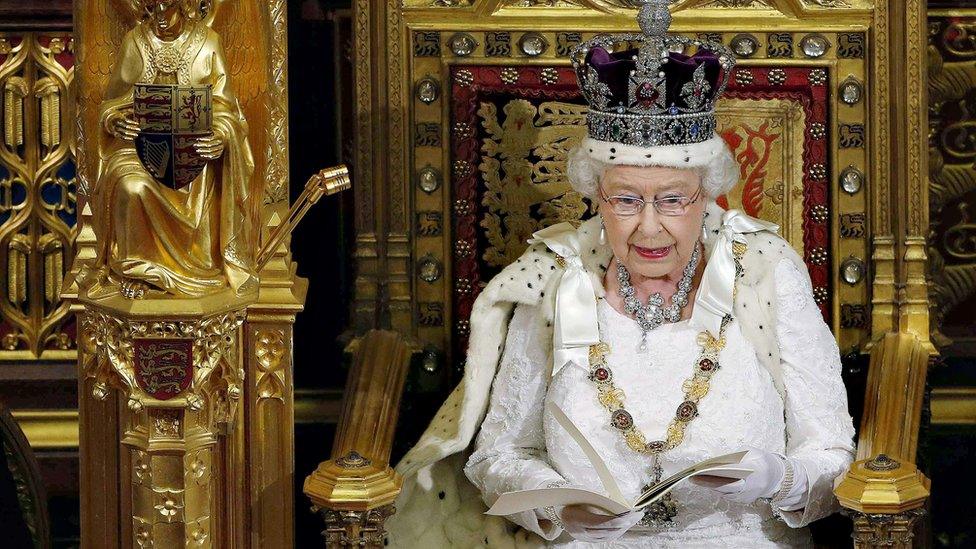Petitions: What are they and how do they work?
- Published
- comments

More than one million people have signed a petition demanding for Parliament not to be suspended
You might have read a lot about petitions in the news recently.
In the last few days, more than one million people have signed one demanding for Parliament not to be suspended.
But how do petitions work - and do they actually lead to anything?

Over half a million people signed a petition asking to block Donald Trump from entering the UK
What is a petition?
A petition is a list of demands or a call to action, and people sign their names to show support for it.
They can be set up about almost anything.
There have been petitions to stop the US President entering the UK, calling for school to start at 10am and even to make homework voluntary for children!
Earlier this year - more than five million people in the UK signed a petition calling on the government to stop Brexit by revoking Article 50.
It's the most popular petition to ever have been submitted on the UK Parliament's website - historians say it's the biggest petition to Parliament in history.

Parliament considers petitions that get more than 100,000 signatures for a debate
Does the government have to pay attention to petitions?
People set up petitions to get something changed - whether it's by their school, their local council, or even the government.
People have submitted petitions to Parliament for well over 100 years, but in 2011 the government changed the rules so that any petition with over 100,00 signatures is considered for a debate.
The petition has to be about something that the government is responsible for - otherwise there's nothing they can do to help.
Have any been successful?
Yes and no. Lots of petitions have been debated in Parliament, but not a lot of laws have been made as a result of those debates.
However, some campaigners say the awareness that their petitions have raised helped their cause anyway.
In terms of the petition asking the government not to suspend Parliament - it's unlikely much will happen, because the Queen has already approved the prime minister's request to do it.
When asked if the government could ignore a petition signed by so many people, Dr Catherine Haddon, a senior fellow at the Institute for Government, said: "These petitions will lead to some sort of House of Commons debate in Westminster Hall; but no, it doesn't bind the government to any action."
- Published31 August 2019

- Published28 August 2019

- Published13 June 2019

